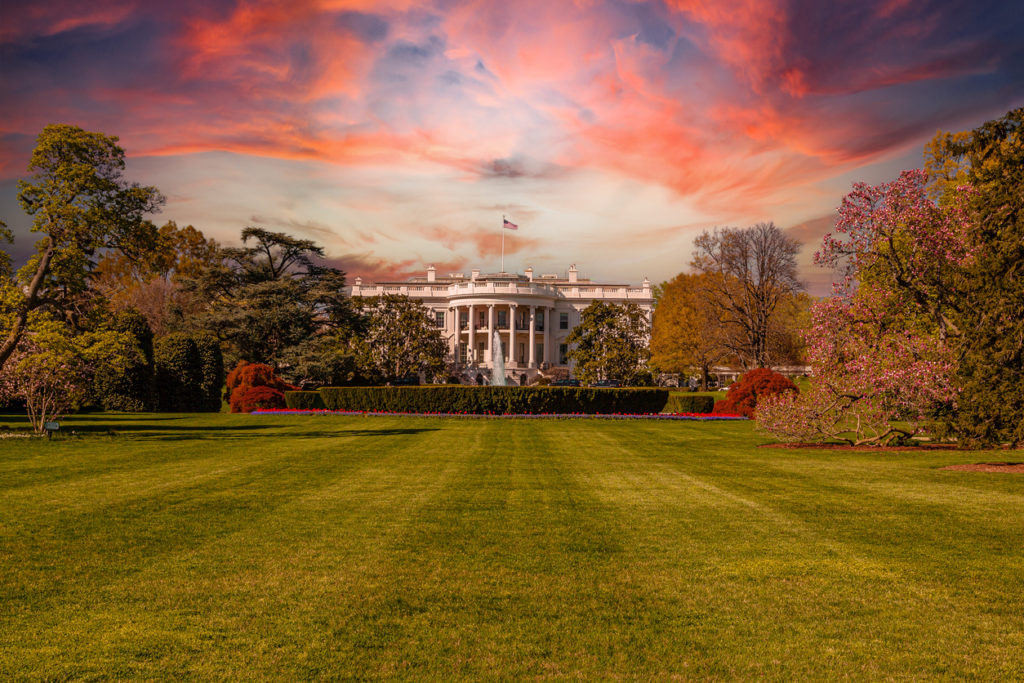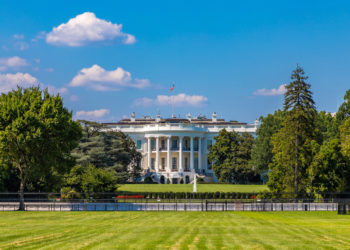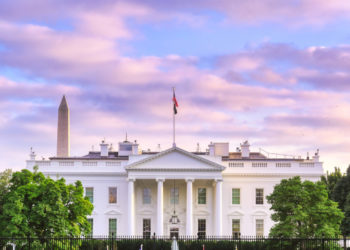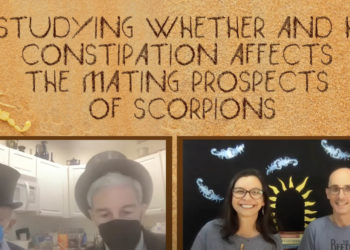Since its release in late August, interest in the new memorandum from the U.S. White House’s Office of Science and Technology Policy (OSTP) has been intense. Titled Ensuring Free, Immediate, and Equitable Access to Federally Funded Research, the memo was released by the OSTP’s Deputy Director (then performing the duties of Director) Dr. Alondra Nelson, and it significantly updates and expands the requirements laid out in a previous version, the Holdren memo of 2013. Observers and stakeholders have greeted it with reactions across the full spectrum from celebration to consternation.

In light of the ongoing discussion this new memo has sparked, and the many issues that it has brought to the surface, we invited Dr. Nelson to be interviewed via email, and put together a set of questions for her. We inquired about issues such as:
- The shift from mandatory language (in the Holdren memo) to “recommendation” language (in the Nelson memo)
- OSTP’s view on whether open science creates any risks as well as benefits
- What Dr. Nelson and her team see as the most important and meaningful benefits of open science
- Potential impact of the policy changes on non-profit scholarly publishers
- Implementation challenges
- Whether the posting of preprints would constitute sufficient compliance with the new policy
It is worth noting that Dr. Arati Prabhakar was confirmed just last week as the new OSTP Director. Through her press secretary, Dr. Nelson signaled her willingness to respond to our questions on August 31, and we have been in touch with the press office multiple times since then. They assure us that responses are in the works, and have promised to have them to us by October 8. In fact, the OSTP’s press officer requested that this update piece include the following statement:
At OSTP, we do our best to respond as quickly as possible to the many media requests we receive regarding the office’s wide-ranging policy portfolio. We will have a reply to Scholarly Kitchen no later than October 8.
We’re appreciative of the many issues OSTP handles, and look forward to Dr. Nelson’s reponses. In the meantime, we thought it would be useful to offer a round-up of reactions, reflections, and predictions around some of the themes that we’ve asked her to address.
In the few weeks since the OSTP memo was published, the Scholarly Kitchen has already run 7 posts about it, 3 guest posts and 4 from regular Chefs starting with Rick’s “Initial Observations” post. “Ask the Chef” posts in parts one and two garnered responses, some brief and some lengthy, from 14 of our writers. Roger Schonfeld wrote a post asking “How Will Academia Handle the Zero Embargo?” A guest post from Christos Petrou of Scholarly Intelligence tackled “Quantifying the Impact of the OSTP Policy.” In a guest post Dylan Ruediger of ITHAKA S+R, a current SSP fellow, considered “The Outlook for Data Sharing in Light of the Nelson Memo.” And Roy Kaufman of the Copyright Clearance Center analyzed “Missing Revenue in the Global Flip: Getting the Open Access Math Right” in a final (to date) guest post.
In these posts, the comment threads, links within the pieces themselves and some within comments, we see a robust conversation that sometimes retreads the same conversations around open access that have circulated for years, and sometimes breaks new ground.
Perhaps in part because open access conversations, debates, policies and programs have been around for at least a couple of generations of researchers, librarians, and publishers, it can be useful to repeat some of the basic issues and positions for those who may be new to their careers or for whom the issues have become newly relevant or urgent. But it’s also notable what seems genuinely new with the OSTP memo, including a sense of energy and optimism from many who are writing, speaking, and tweeting about it.
We’ve noted here articles, blog posts, news coverage, and industry pieces as well as a few social media comments that struck us as a useful sample, and that approach some of the issues we asked Dr. Nelson to address. We also want to acknowledge other roundups – among them an early and immediate one from InfoDocket, for example. We hope you’ll find this a helpful addition to the ongoing discussion of the OSTP memo, and invite you to add other links in the comments section.
(NB: We tried to include only links to openly accessible pieces, such as all the Scholarly Kitchen content, but some, especially news stories, require at least a sign-in.)
US News, Reporting and Opinions
Axios: White House to make all federally funded research immediately accessible
New York Times: White House Pushes Journals to Drop Paywalls on Publicly Funded Research
The Chronicle of Higher Education, “A Historic Moment: New Guidance Requires Federally Funded Research to be Open Access.”
Nature: US government reveals big changes to open-access policy
Science: White House requires immediate public access to all U.S.-funded research papers by 2025
Inside Higher Ed: “Who’ll pay for public access to federally funded research?”
Endpoint News, “A Push for Transparency: US to Make All Federally-Funded Research Public”
The Verge: No more paywalls for public research, says White House
Advocacy
On Github, an open letter with over 1,000 signatures: Open letter to the WHOSTP and Subcommittee on Open Science
Chronicle of HE, Letters: Colleges Should Reward Efforts to Make Research Open
SPARC: Taxpayers to Get Immediate Access to Publicly Funded Research – SPARC
Open Research Funders Group: Open Research Funders Group Applauds Bold OSTP Action
Organizational Responses (publishers, societies, infrastructure groups, and the White House!)
The White House rounded up positive responses to the Nelson Memo: WHAT THEY ARE SAYING: White House Federally Funded Research Guidance Hailed as a Win for Innovation and Equity
ASM: ASM Responds to OSTP Guidance on Federally Funded Research Access
Creative Commons: A Big Win for Open Access: United States Mandates All Publicly Funded Research Be Freely Available with No Embargo – Creative Commons
Frontiers: Unlocking US science for healthy lives on a healthy planet – Science & research news | Frontiers
IOP Publishing, based on its recent global study of physical science researcher access to OA funding: IOP Publishing’s Response to White House OSTP Memo | NISO website
Figshare: a figshare article – Halfway to happiness — what the OSTP update means in the grand scheme
Library Reactions and Researcher Guidance
Boston University: Will New White House Open Access Rules Impact Researchers? | The Brink | Boston University
University of Oregon: UO Libraries Supports New U.S. Policy Making Research Results Available Immediately
Virginia Tech Library guide updated: Researcher Profiles and Identifiers: ORCiD
Commentary and Prognostications (blogs, social media)
Kent Anderson of The Geyser, on Charleston Hub, “The Hidden Inequalities in OSTP’s New Guidance”
Howard Ratner, CHORUS Executive Director: “Thoughts and Observations on the Policy Guidance of the OSTP Memo”
Meg White of the Charleston Conference and Charleston Hub, “The Nelson Memo: More Questions than Answers”
From Clarke & Esposito’s The Brief, “Zero Embargo”
From Delta Think: News & Views: OSTP Memo – Modeling Market Impact – Delta Think
A Columbia University online presentation: Expanding Public Access to Federally Funded Research: Implementing the OSTP Memo
Lost in the Stacks (podcast)
International Reactions
Open Access Australasia: Open Access Australasia comment on US White House OSTP Public Access Guidance
Jeff Pooley on the LSE blog: The APC question mark hovering over the OSTP announcement | Impact of Social Sciences
Social Media
Of many responses on Twitter, this one from Brett Bobley of NEH may be suggestive of a key agency’s response to the Nelson memo:
Well, here's Penn State Library's definition of green OA. It sounds a lot like what I'm reading in the OSTP memo. Of course, we'll need to work closely with OSTP and other agencies to figure out an actual policy. But it sure sounds like green OA. https://t.co/lJxW5CMhcE
— Brett Bobley (@brettbobley) September 15, 2022


